June 10, 2020
by Elizabeth Pratt

A survey from the American Psychological Association (APA) found the pandemic is taking a toll on the mental health of parents. Almost half of parents with children aged less than 18 report their stress relating to the COVID19 pandemic is high.
[More]
April 30, 2020
by Elizabeth Pratt
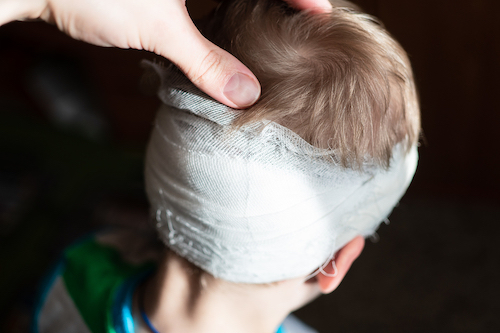
Children of parents with mental illness are at greater risk of injury than their peers.
A study from Karolinska Institutet in Sweden found that the risk is elevated for children of parents with mental illness up until the age of 17.
[More]
March 23, 2020
by Elizabeth Pratt
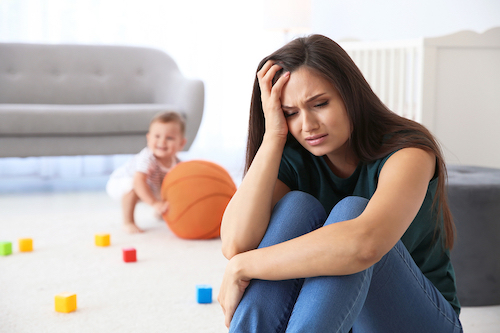
Children who blame themselves for their mothers being unhappy are more likely to experience depression and anxiety.
[More]
February 4, 2020
by Patricia Tomasi

A new study published in the Journal of Family Systems and Health looked at whether Parenting Journey, a 12-week parenting program based on the principles of family systems theory, helps parents manage stress and improve family strengths. This is the first study of the impact of Parenting Journey on parent-reported outcomes. While there are many parent training programs, researchers say there is still a need for effective supports that can be delivered in the community to parents of different races and backgrounds.
[More]
December 3, 2019
by Patricia Tomasi

A mother picks up her baby and shows her a stuffed giraffe toy. She tells her baby that giraffes have long necks and spots. The child feels her mother’s arms around her, hears her voice, and looks at the giraffe. The mother has provided tactile, auditory, and visual input, otherwise known as sensory signals. A new study has shown that when infants or young children experience unpredictable sensory signals from their parents, their brains, in particular their executive functioning, doesn’t develop properly and can contribute to mental health problems as they grow.
[More]
October 29, 2019
by Patricia Tomasi
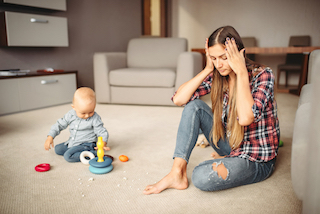
A new study, titled, Associations between parenting stress, parent mental health and child sleep problems for children with ADHD and ASD, looked at whether sleep problems experienced by children with Attention Deficit Hyperactivity Disorder (ADHD) and Autism Spectrum Disorder (ASD) were connected to parenting stress. About one in 59 children in the U.S. has been diagnosed with ASD and like ADHD, and it’s more common in boys than girls, about four times more common. One in 37 boys and one in 151 girls were diagnosed with ASD in 2018.
[More]
September 30, 2019
by Elizabeth Pratt
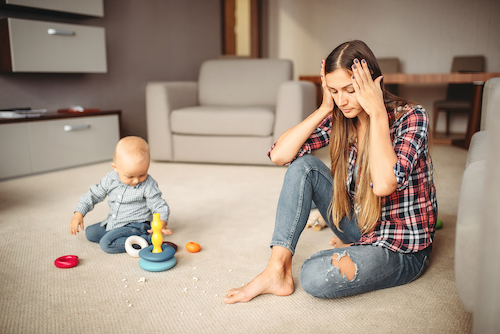
Not all parenting tasks are fun. Now researchers have found the context in which parents do childcare activities could impact happiness and stress levels.
[More]
July 31, 2019
by Elizabeth Pratt

Although sharing updates of a child's life on social media has become the norm in many social circles, researchers say this may be due to a mothers' vulnerability, and could put children at risk.
[More]
June 16, 2019
by Elizabeth Pratt

Researchers have found the kind of time fathers spend with their children influences the strength of their relationship in the early years.
[More]
April 4, 2019
by Elizabeth Pratt
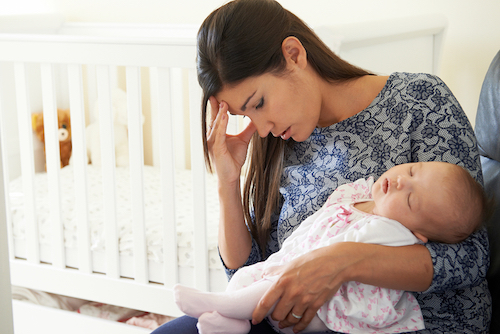
The US Food and Drug Administration has approved the first drug designed specifically for the treatment of postpartum depression.
[More]